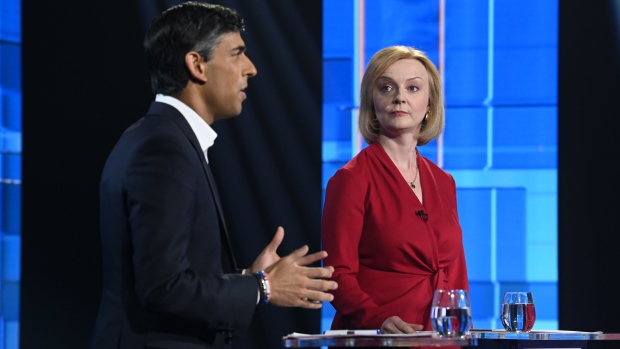Aug 25, 2022
‘Trussonomics’ Gets a Reality Check
, Bloomberg News

(Bloomberg) -- Subscribe to In The City on Apple podcastsSubscribe to In The City on Spotify
The Tory leadership contest is inching closer to its end as Liz Truss and Rishi Sunak round up their campaigns in the fight for No. 10 Downing Street. In the few short weeks since the two began on their road trip to win over Tory members, the economic outlook has gone from bad to worse. The winner is now facing inflation topping 18 percent next year by at least one estimate. Average households are likely to be paying £6,000 a year for gas and electricity. And the pound hit its weakest level since March 2020.
Despite facing the same challenging outlook, Truss and Sunak have sharply divergent views on how to handle the economy and public finances. In this episode of In The City, Francine Lacqua speaks with Simon French, chief economist at Panmure Gordon, about the campaign pledges from both candidates for leadership, and why they don’t stand up against the reality of the UK’s situation. “There aren’t many votes in talking about the details of public sector spending at the moment,” French says. “There are votes in tax cuts and big picture stuff. That’s the reality of governing economics versus campaign economics.”
They focus on the tenets of “Trussonomics,” the likelihood of Kwasi Kwarteng being named the next chancellor, and why the City probably has a slight preference for Rishi Sunak to become the next prime minister.
©2022 Bloomberg L.P.






